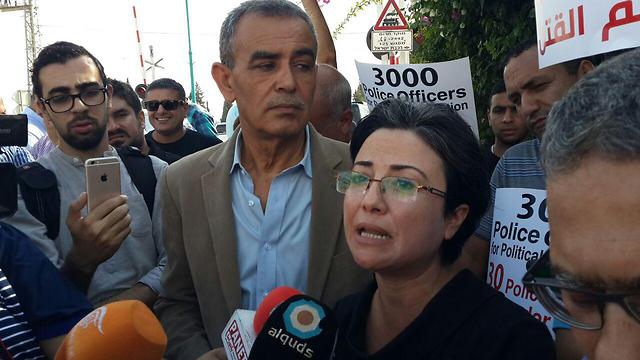
It's time for a new leaf in Arab-Jewish relations
Opinion: In Israel, Jews are said to hate Arabs and Arabs are said to hate Jews; fueled by politicians from both sides, hatred is taking over the country; but with the worst inciters among the Arab MKs leaving, we have an historic opportunity for unity.
The reality is much more complex. We need to bear in mind that Israeli Arabs go through a process of Israelization. And if we do rely on surveys, we are better off using thorough and professional ones such as Prof. Sammy Smooha's annual Jewish-Arab Relations Index surveys or the Israel Democracy Index polls conducted by Prof. Tamar Hermann.
These surveys gives us a lot of input into Israeli society. While this information may not be reassuring, the picture that emerges is much more optimistic than the image portrayed by the media, which by its very nature mostly deals with violent events and divisive statements, and less with in-depth processes.
For example, according to one survey, 83% of Jews describe their personal situation as "good" or "very good," compared to 64.5% of Israeli Arabs. There is a gap. Still, most Israeli Arabs are content with their lives.
Is Israel a democratic state for Arabs as well? In 2017, 45% of Israeli Arabs thought so, and a year later — only 33% did. We can assume that premature declarations about the "end of democracy" in general, and the Nation-State Law in particular, induced this decline.
When dealing with the root causes of Israeli Arabs' declining sense of personal well-being, it is hard to ignore one fundamental issue: the political echelon. There is no doubt sound arguments can be made against MKs like Bezalel Smotrich of Jewish Home. And he is not alone—we must bear in mind that there are worse politicians in the Arab sector.
Outgoing MKs Hanin Zoabi and Jamal Zahalka of Joint List are the most conspicuous of the bunch. In recent years they have engaged in relentless incitement. They do not seek reconciliation or peace. On the contrary, they seek to divide, like when, for example, Zahalka turned young Arab men who wanted to enlist in national service (their number has grown in recent years, by the way) into "pariahs."
Meanwhile, Zoabi boarded the Mavi Marmara flotilla to identify with anti-Semitic jihadists from the Turkish Foundation for Human Rights and Freedoms and Humanitarian Relief (IHH), a nonprofit organization.
In recent years, Zahalka and Zoabi have opened a can of worms of nauseating remarks, which not only failed to help Israeli Arabs, but raised the level of hostility between Arabs and Jews. This week they both announced they will not be seeking reelection. This is excellent news for anyone who wants peace and equality, and supports the integration of Israeli Arabs into our society.
After observing these two, many average Israelis lost interest in equality in favor of a different cause: the revocation of voting rights for Israeli Arabs. Those who identify with Hamas and terrorism, and those who fight against Jews' right to self-determination are managing to turn Israeli Arabs into a fifth column—something that they are not.
Despite the jarring statements of Arab leaders, about 50% of Israeli Arabs accept the definition of Israel as a Jewish and democratic state. Without the shadow cast by extremist leadership, this percentage will increase.
The resignations of Zahalka and Zoabi is an historic opportunity for change. It may not be easy, since choosing their replacements is in the hands of political activists who tend to hold radical rather than unifying views. And yet, after Azmi Bishara, Zahalka and Zoabi, we need to reach a turning point. The ball is in the court of Israeli Arabs. We need to end this "end of democracy" age— for their sake, as well as for our own.












